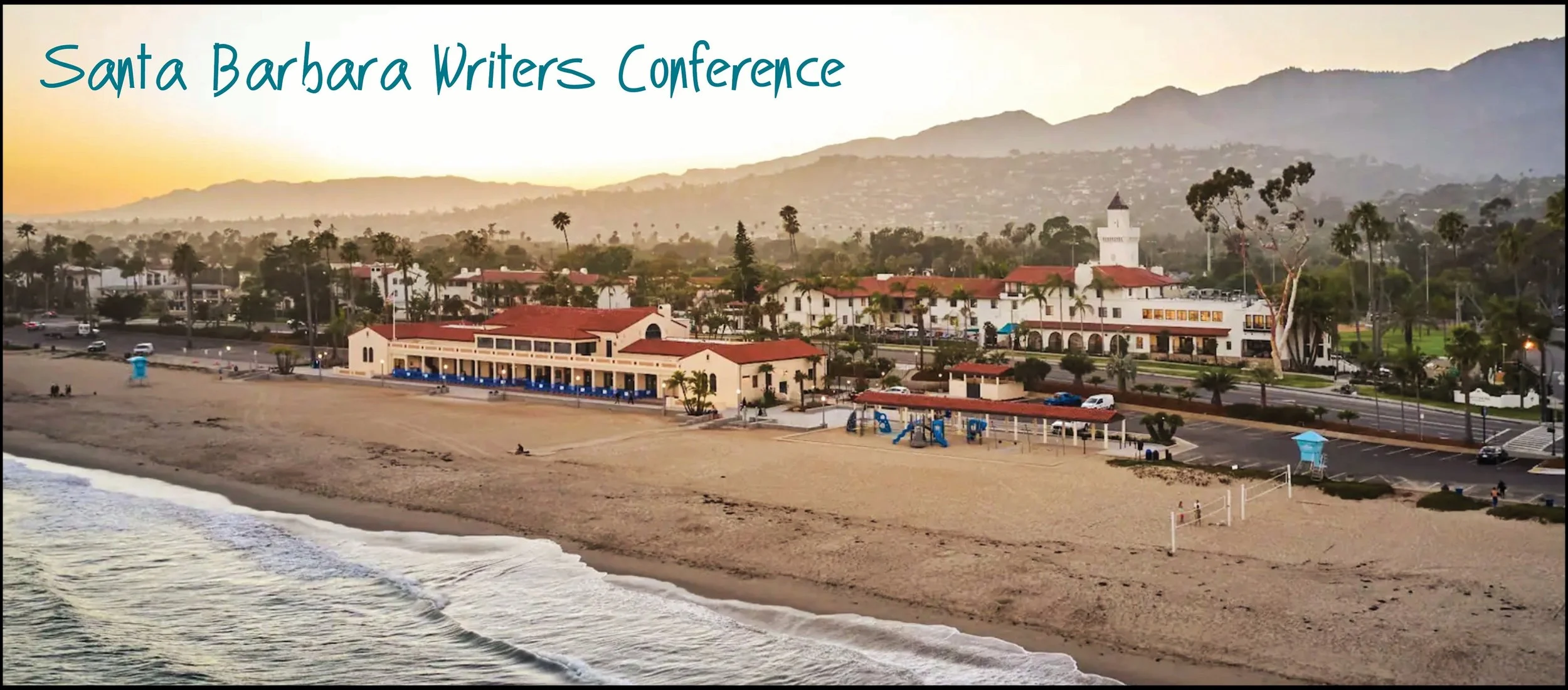by Perie Longo
A seventh grade student of mine once wrote:
If all writing is a picnic basket then poetry is the chocolate cake.
How delicious to be returning to SBWC after a two year hiatus, looking forward to a delicious feast of seeing old friends and meeting new ones. Just now, lines spring up from a poem by Linda Pastan titled “A New Poet.”
Finding a new poet is like finding a new wildflower out in the woods.
its leaves grow in splayed rows down the whole length of the page. In fact the very page smells of spilled
red wine and the mustiness of the sea on a foggy day—the odor of truth and of lying.
That’s an interesting last stanza, considering Santa Barbara’s June gloom and the sea at our feet. Good writing weather, for sure. We do a share of that in my workshop, but our main focus is on taming the poems you bring, getting them ready for publication. And about “truth and lying”, read Richard Hugo’s The Triggering Town. He says if you’re writing about your blue house and it works better for the poem to make it yellow, make it yellow! Memory is fuzzy at best and poetry is more about what we see on reflection than accuracy of fact.
On the subject of editing, I heard Linda Pastan give a reading in Washington DC some years ago and she said she edited her poems thirty-nine times, and Ted Kooser said he edited his fifty! Often poets think suggestions for editing means their poems aren’t any good. Nothing could be further from the truth. Back to the chocolate cake metaphor, editing is a way to look at the ingredients and turn the poem into a seamless moment that slips easily onto the tongue to end not with a whimper, but a bang, or a deep sigh! It’s not about the number of times we edit (i.e. commas in, commas out or this word for that word), but being open to seeing what is there, and making more of it.
Please bring ten copies to share. A poem is a visual experience, as well as auditory, and the look of a poem on the page is as important as the structure, language, rhythm, and imagery, to name a few things that are helpful to talk about. Discussion of our poems, and poems of other poets, provides fodder for dialogue about the many aspects of poetry. I’ve always found the wide range of experience of those who attend the workshop provides a great learning experience for all of us. When we become more aware of how to read a poem, to look at how a poet arrives at what we call a “good” poem, we become more astute at editing our own and improving our craft. Often I’m asked, “What makes a good poem?” Or with free verse, “What makes it a poem if it doesn’t rhyme?” Difficult questions not easy to answer, but ones we like to mull. There are probably as many different opinions about that as there are poets and types of poems, which leads to other comments I often hear. “I don’t understand poetry,” and “Why would anyone write poetry if it doesn’t make any money?” To that question I might reply, “Because it makes me happy.” Poetry is a natural expression that links us to each other, heart to heart, in many profound ways, and helps us understand what it is to be human. Poetry exists in all genres of writing. Focusing on fresh language and voice is the domain of all who take pen to paper or finger to computer. We live for words. As Pablo Neruda wrote in his Memoirs:
I love words so much…The unexpected ones…The ones I wait for greedily or stalk until, suddenly, they drop… Vowels I love…They glitter like colored stones, they leap like silver fish, they are foam, thread, metal, dew…I run after certain words…They are so beautiful that I want to fit them all into my poem…I catch them in mid- flight, as they buzz past, I trap them, clean them, peel them, I set myself in front of the dish, they have a crystalline texture to me, vibrant, ivory, vegetable, oily, like fruit, like algae, like agates, like olives…And then I stir them, I shake them, I drink them, I gulp them down, I mash them, I garnish them, I let them go…
Happy writing, and see you soon at the Mar Monte!













